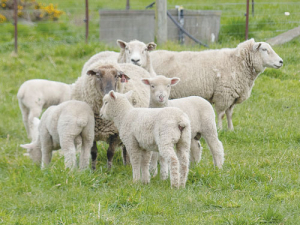Beef + Lamb NZ expects the total numbers of beef and dairy cattle and sheep to be static for the next five to six years and into the future.
The latest figures from Stats NZ show beef cattle numbers were up and dairy cattle numbers down in the past year. Sheep numbers were also down.
But the short and long term outlook is for little change, according to BLNZ.
“Through to 2024-25, we expect overall sheep, beef cattle, and dairy cattle numbers to be about static,” chief economist Andrew Burtt told Rural News.
“However, price differentials could influence slightly more sheep and slightly fewer cattle but this will likely be marginal over that timeframe.
“We expect dairy cattle numbers to hold but any shift to lower-input regimes may result in numbers being slightly lower. Beyond 2024-25, overall, we expect numbers to hold subject to any changes in land use.
“While there was a decline in sheep numbers last year, it’s worth noting that 2017-18’s lamb production was just 5% less than in 1990-91 despite there being 52% fewer sheep overall.
“Efficiency gains like this have also seen greenhouse gas emissions from the sheep and beef sector decrease by over 30% since 1990.”
Stats NZ says the number of dairy cattle dipped for the second year, while beef cattle numbers increased strongly in 2018.
Provisional figures from the 2018 agricultural production census showed dairy cattle numbers fell 1%, to 6.4 million in June 2018.
“This followed a similar small dip in 2017, though overall dairy cattle numbers have been relatively steady since 2012,” agricultural production statistics manager Stuart Pitts says.
Total dairy cattle were at their highest level in 2014 at 6.7 million.
“Dairy products are a huge export for New Zealand. The value of milk powder, butter and cheese exports for the year ended June 2018 was $14.1 billion.”
Beef cattle numbers rose for the second year in a row, up 5% to 3.8m in 2018.
Total sheep numbers eased again in 2018, down 1% to 27.3m.
“Sheep numbers have fallen in 10 of the past 12 years, in total down about 12.8m from about 40.1m in 2006,” Pitts says.
“New Zealand now has 5.6 sheep for every person, after peaking at 22 sheep for every person in 1982.”
A large fall in sheep and beef cattle numbers since 1990 means overall stock units have fallen in the past 28 years, despite a rise in dairy cattle numbers.
A ‘stock unit’ means different types of animals can be compared, based on the food they eat and how much they weigh.
The stock unit is based on the annual feed needed for a 55kg ewe rearing a single lamb. A dairy cow is the equivalent of about seven ewes, so is counted as seven stock units, compared with just one stock unit for a ewe.
In 1990 there were 100m stock units in total; at least half of those sheep, with most of the rest in beef and dairy cattle. Deer make up a small part of the total.
By 2004, total stock unit numbers fell to 94m and in 2018 that was down to 86m. “The large drop in stock units since 1990 mainly reflects a halving in sheep numbers, down from 53m stock units to 25m,” Pitts says.
“In the same period, dairy stock units almost doubled to 41m. By 2018 dairy cattle made up almost half of all livestock units.”


















